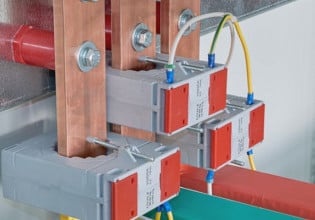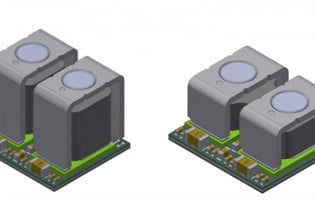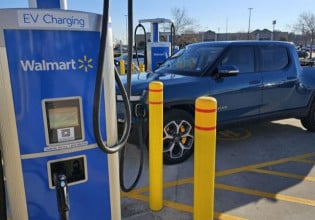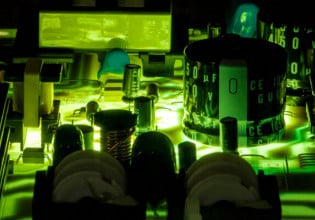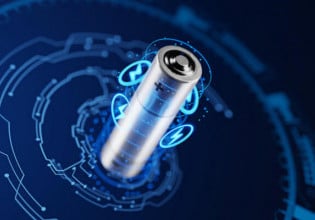This week, Climeworks launched the world's first commercial plant that captures atmospheric CO2 for supply and sale to a customer. The Swiss direct air capture company launched the commercial-scale Direct Air Capture (DAC) plant, featuring its patented technology that filters carbon dioxide from ambient air. The plant is now supplying 900 tons of CO2 annually to a nearby greenhouse to help grow vegetables. The plant is a historic step for negative emissions technology – earmarked by the Paris climate agreement as being vital in the quest to limit a global temperature rise of 2 degrees C.
Founded by engineers, Christoph Gebald and Jan Wurzbacher, Climeworks developed its technology to capture atmospheric carbon with a filter, using mainly low-grade heat as an energy source. In Hinwil the DAC plant has been installed on the roof of a waste recovery facility – operated by the municipal administration union KEZO – with its waste heat powering the Climeworks DAC plant.
During the Climeworks capture process, CO2 is chemically deposited on the filter surface. Once the filter is saturated, the CO2 is then isolated at a temperature of about 100 degrees C. The pure captured CO2 gas can then be sold to customers in key markets, including: commercial agriculture, food and beverage industries, the energy sector and the automotive industry. In Hinwil, Climeworks provides a continuous supply of CO2 through an underground pipeline to a greenhouse 400m away, operated by Gebrüder Meier Primanatura AG, to assist with growing vegetables such as tomatoes and cucumbers.
By securing this supply agreement, Climeworks has ensured the Hinwil operation is the world’s first direct air capture plant with a commercial customer – an important step for the future of negative emissions technologies. The Hinwil plant will operate as a three-year demonstration project in co-operation with the partners Gebrüder Meier and KEZO, and with a contribution towards non-amortizable costs by the Swiss Federal Office of Energy (SFOE).
“Highly scalable negative emission technologies are crucial if we are to stay below the two-degree target of the international community,†says Christoph Gebald, co-founder and managing director of Climeworks. “The DAC-technology provides distinct advantages to achieve this aim and is perfectly suitable to be combined with underground storage. We’re working hard to reach the goal of filtering one per cent of global CO2 emissions by 2025. To achieve this, we estimate around 250,000 DAC-plants like the one in Hinwil are necessary.â€
The CO2 captured by Climeworks can be used to carbonate beverages or produce climate-neutral fuels and other materials. Capturing CO2 locally for industrial uses enables customers to reduce their emissions and lessen their dependence on fossil fuels, as currently most industrial CO2 is transported from fossil point sources via truck to industries on site. In comparison to other carbon capture technologies, a modular Climeworks plant can be employed almost anywhere.
In coming months Climeworks plans to launch additional commercial pilot projects in key target markets and wants to test its technology’s potential to deliver negative emissions by combining it with underground storage. “With the energy and economic data from the plant we can make reliable calculations for other, larger projects and draw on the practical experience we have gained.†says Jan Wurzbacher, Climeworks co-founder and managing director.
A white paper from Climeworks details the technical and business concepts behind the development of negative CO2 emissions processes. -- CO2 is a valuable agricultural fertilizer: if used in the correct amount, it increases the growth of vegetables such as tomatoes and cucumbers by up to 20 per cent. “The plants become larger and strongerâ€, says Fritz Meier, responsible for greenhouse cultivation at the company Gebrüder Meier Primanatura AG in Hinwil, Switzerland. As of today the agricultural enterprise no longer receives fossil CO2 via truck delivery but – in a world first – from a Climeworks plant that filters the valuable raw material directly from ambient air.
Back in 2008 Christoph Gebald and his fellow student Jan Wurzbacher first visited the family business of the Meier brothers. The two students of the Swiss Federal Institute of Technology in Zurich (ETH) had the idea to filter CO2 directly from ambient air for sale as a raw material. “We presented our concept and concluded a memorandum regarding the possibility of purchase, in case we managed to build the corresponding plant,†Christoph Gebald recalls. The first business plan was then developed for a venture challenge course at the university.
Nine years later the first commercial plant of its kind crowns the roof of the waste utilization plant run by KEZO, the regional administration unit for waste recovery. “Since our first visit here we managed to upgrade the capacity from a few milliliters per day in the lab to an industrial scale of 900 tons per year,†says Christoph, now managing director at Climeworks. The method which Christoph and Jan developed with a team of more than 40 experts is called Direct Air Capture and is now ready for commercial use. The realization of the plant in Hinwil has been supported with a contribution towards non-amortizable costs by the Swiss Federal Office of Energy (SFOE).
Eighteen Climeworks CO2 collectors have been installed on top of the roof of the waste utilization plant, in view of the greenhouses 400 meters away. “The fans on the outside serve to suck in the ambient air,†Christoph explains. Within each collector begins the process of adsorption and desorption before the air with reduced CO2 content is blown out again. “Our filters are saturated with CO2 within a few hoursâ€, Christoph describes.
To ensure the process of desorption, the saturated filter is heated up to about 100 degrees Celsius. “For this we use the waste heat from KEZO, making our process particularly resource friendlyâ€, Christoph explains. Then the high purity CO2 is isolated and transferred to the Meier brothers’ greenhouses via gas pipeline. The agricultural enterprise annually buys up to 900 tons of the gas from Climeworks at market prices.
“Using CO2 generated from local ambient air blends in well with our sustainable principles and supports the marketing of our productsâ€, says Meier. The growth of cucumbers or tomatoes, which the company grows for Swiss wholesales, is increased significantly. Until now, a truck had to cover large distances to fill up a CO2 tank to ensure their supply.


